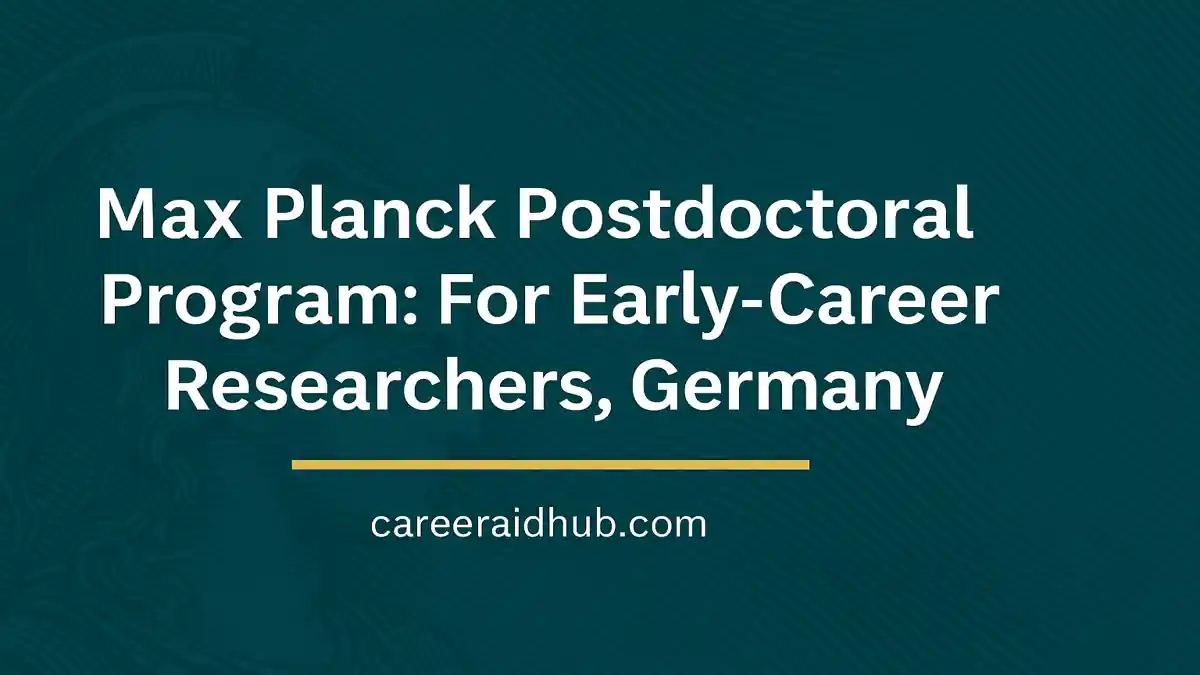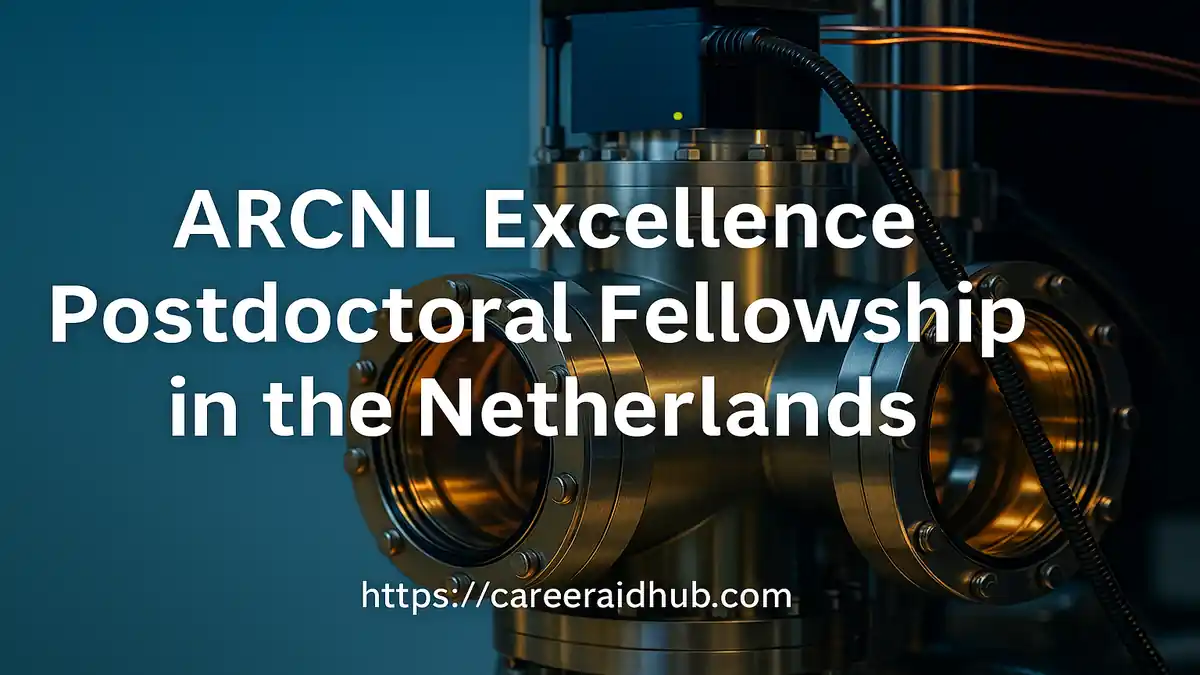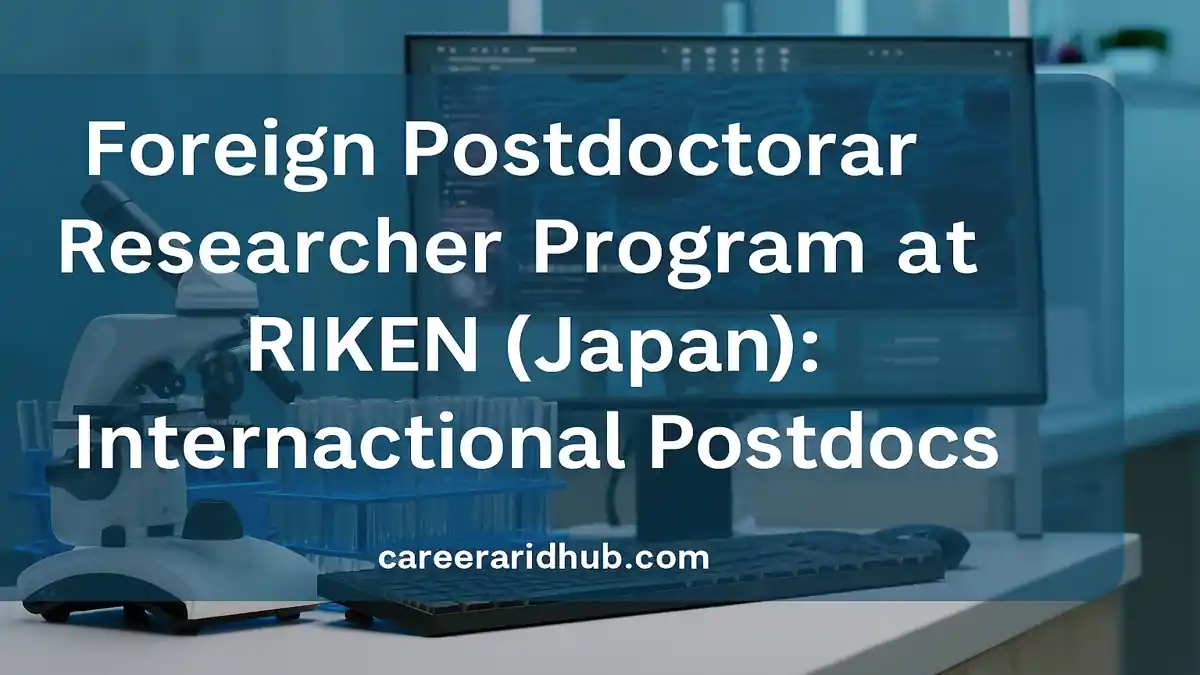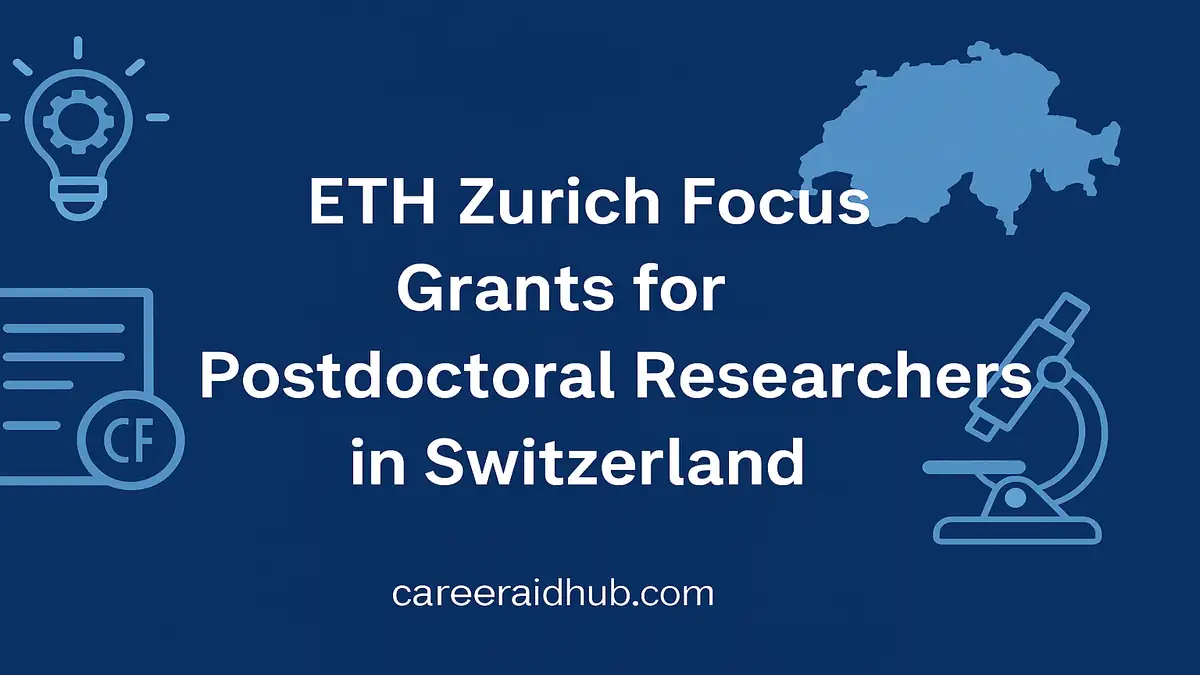The Max Planck Postdoctoral Program presents a distinguished opportunity for early-career researchers seeking to advance their academic and scientific trajectories. Tailored for individuals who have recently completed their doctoral studies, the program offers a structured environment that fosters independent research, professional development, and interdisciplinary collaboration. With a strong emphasis on mentorship and career progression, it equips postdoctoral scholars with the resources and support necessary to pursue high-impact research and establish themselves as future leaders in their respective fields.
Max Planck Postdoctoral Program 2025–2026: A Comprehensive Guide for Early-Career Researchers
The Max Planck Postdoctoral Program in Germany is a fully funded opportunity for early-career researchers across disciplines. With structured mentorship, career workshops, and institutional support, it offers an ideal environment to pursue impactful research in a globally respected scientific ecosystem.
Application Timeline and Frequency
The Max Planck Society invites applications for its prestigious postdoctoral program twice each year:
-
-
Spring Cycle: Traditionally opens in March
-
Fall Cycle: Begins in September
-
Each application cycle remains active for approximately six weeks. While the Spring 2025 window shifted slightly—opening in April and closing mid-May—the
Program Features and Benefits
The Max Planck Postdoctoral Program (MPPP) stands apart from many international postdoc opportunities due to its robust academic framework and researcher-centric benefits.
Three-Year Funded Contract
Fellows receive a guaranteed minimum appointment of three years, offering substantial time to develop independent research while contributing meaningfully to collaborative projects. This long-term security is a critical advantage in building a stable research trajectory.
Structured Mentorship and Guidance
Participants are mentored not only by their immediate host but also through a broader network of cross-institutional and industrial advisors. This fosters interdisciplinary engagement and prepares fellows for diverse career paths in academia, government, and industry.
Career Development through Planck Academy
Fellows participate in mandatory workshops and professional development modules via the Planck Academy within their first two years. Topics span grant writing, publication strategy, research ethics, leadership skills, and interdepartmental collaboration.
Family and Relocation Support
Recognizing the challenges of global mobility, the program includes provisions for dual-career families, parental leave, childcare support, and relocation assistance. This ensures a more inclusive
Full Institutional Integration
Fellows are deeply embedded in their host institute’s ecosystem. Access includes high-end laboratory infrastructure, internal research symposia, interdisciplinary seminars, and collaborative networks across Max Planck Institutes.
Application Process
Centralized Submission Portal
Applications are submitted via a unified online portal where candidates can express interest in multiple institutes or groups. This streamlined system improves visibility across relevant research domains.
Required Application Materials
-
-
Cover Letter: Clearly state your research interests and motivation
-
Curriculum Vitae: Include academic history, awards, and publication record
-
Research Summary/Statement of Purpose: Outline proposed work and alignment with host institute
-
Motivation Statement: Highlight professional goals and rationale for choosing MPPP
-
Two Reference Letters: From academic mentors or research supervisors
-
All documents must be submitted in English, regardless of the applicant’s country of origin.
Selection Timeline
-
-
Shortlisting: Within four weeks of the application deadline
-
Final Decision: Offers are typically communicated by late November to early December 2025 for the Fall cycle
-
What to Expect After Submission
The selection process is rigorous and unfolds in the following stages:
-
Eligibility Screening: Verification of documentation and formal requirements
-
Scientific Evaluation: Review of the research proposal by senior faculty
-
Optional Interviews: Some institutes may conduct interviews via video or on-site
-
Offer and Onboarding: Successful candidates are issued formal invitations and guidance materials
Selected fellows are expected to begin their postdoctoral tenure between January and April 2026, though extensions for start dates may be considered based on visa or personal needs.
How to Prepare for the September 2025 Cycle
Identify Relevant Institutes
Review the directory of Max Planck Institutes and select 2–3 institutes that align with your expertise. Key research areas include:
-
-
Physics and Astronomy
-
Biology, Neuroscience, and Medicine
-
Environmental Sciences and Climate Research
-
Social Sciences and Humanities
-
Computational and Data Sciences
-
Initiate Early Contact with Supervisors
Email prospective mentors with a concise, tailored message explaining your background, research vision, and why you are a fit for their lab. Attach your CV and research synopsis.
Strengthen Your Research Proposal
Ensure your proposal
-
-
Novelty and significance of your research question
-
Methodological soundness and feasibility
-
Alignment with Max Planck’s mission and lab goals
-
Opportunities for publication, collaboration, and impact
-
Secure Referees in Advance
Reach out to your academic mentors well ahead of the deadline and brief them on your application goals. Provide your updated CV and relevant context.
Submit Early
Avoid last-minute issues by preparing your documents in advance and aiming to submit at least one week before the portal closes.
Why the Max Planck Society Stands Out
With over 80 research institutes spanning a vast range of disciplines, the Max Planck Society represents the pinnacle of research excellence in Europe. It has produced 18 Nobel Laureates and attracts thousands of international researchers annually. Its strong interdisciplinary ethos, commitment to academic freedom, and unparalleled infrastructure make it a globally preferred destination for postdoctoral work.
Germany further enhances this environment by offering a high standard of living, accessible healthcare, reasonable living expenses, and an intellectually vibrant culture.
Final Thoughts
The Max Planck Postdoctoral Program is not just a funding opportunity—it is a launchpad for a globally engaged academic or industry research career. With its strategic focus on mentorship, collaboration, and long-term career development, it equips fellows to lead impactful research in an increasingly interconnected scientific world.
As the 2026 cycle approaches, now is the ideal time to refine your application materials, reach out to potential hosts, and build a compelling case for your candidacy.
For official details and updates, visit the Max Planck Society Postdoctoral Program Page (link given below).
Feature Table:
| Feature | Details |
|---|---|
| Program Name | Max Planck Postdoctoral Program (MPPP) |
| Host Country | Germany |
| Funded By | Max Planck Society |
| Duration | 3 Years (minimum) |
| Study Mode | Full-time |
| Eligibility | International and domestic PhD holders within 2–7 years post-PhD |
| Financial Support | Monthly stipend, research support, relocation, family aid |
| Fields of Study | Physics, Biology, Medicine, Social Sciences, Environmental Science, etc. |
| Deadline | Positions are advertised collectively twice a year – on March 1 and September 1. |
| Official Website | Click Here |
Internal Links:
Frequently Asked Questions (FAQs)
The Max Planck Postdoctoral Program offers fully funded three-year research fellowships for early-career scholars across scientific and interdisciplinary fields at Max Planck Institutes in Germany.
Eligible applicants include PhD holders from any country who completed their doctorate within the past 2 to 7 years and meet the research criteria of participating institutes.
You can apply during the two annual calls—typically in March and September—with each cycle open for approximately six weeks through the official Max Planck portal.
Applicants must submit a CV, cover letter, research proposal, motivation statement, and two academic reference letters, all in English.
The program is highly competitive, with candidates evaluated on research excellence, originality, alignment with host institute priorities, and demonstrated academic achievements.
The fellowship supports diverse disciplines including physics, biology, medicine, neuroscience, environmental science, social sciences, and computational research.
Yes, the fellowship includes relocation allowances, dual-career assistance, childcare support, and flexible options for researchers with families.
The standard fellowship duration is three years, with some flexibility for extensions depending on research progress and institutional arrangements.
Yes, applicants can express interest in multiple Max Planck Institutes or research groups through a single application submission.
Premium Mentorship for a Stronger Application
- Premium Mentorship: personalised 1:1 guidance for this and similar opportunities
- In-depth review of your CV, academic profile, and key statements
- Aligned with international selection criteria so your profile matches what panels expect
- Stronger, more compelling narrative for highly competitive calls
- Step-by-step support from opportunity mapping to final submission (fee-based)










